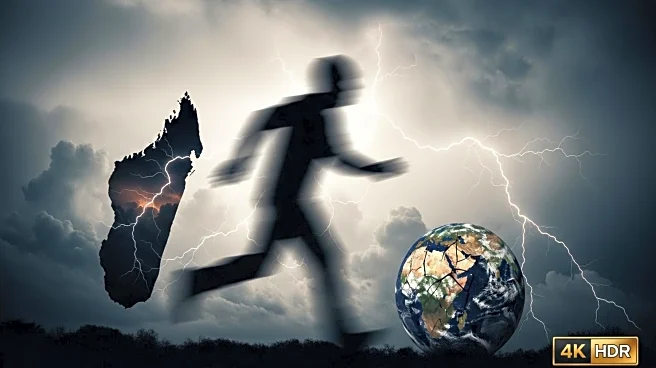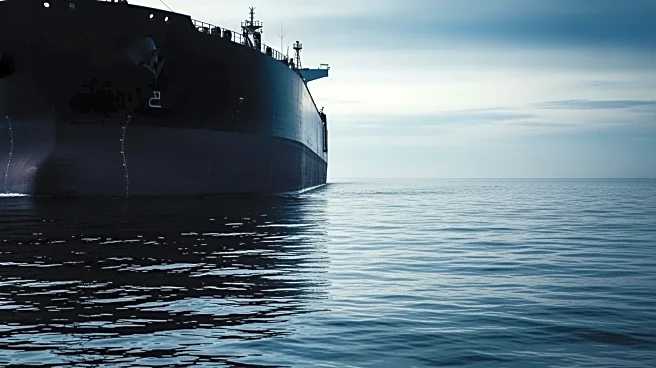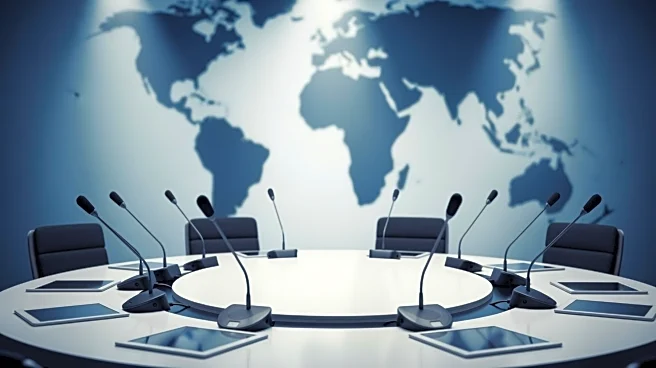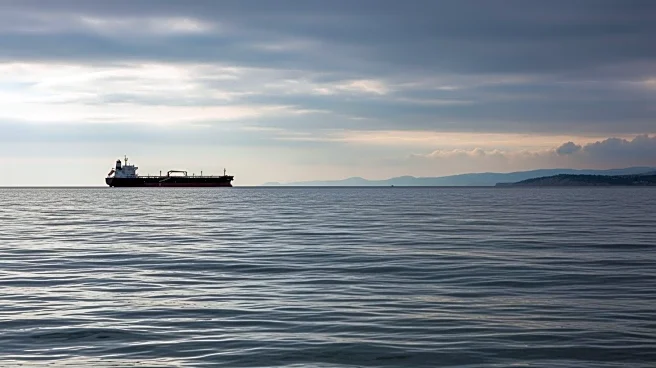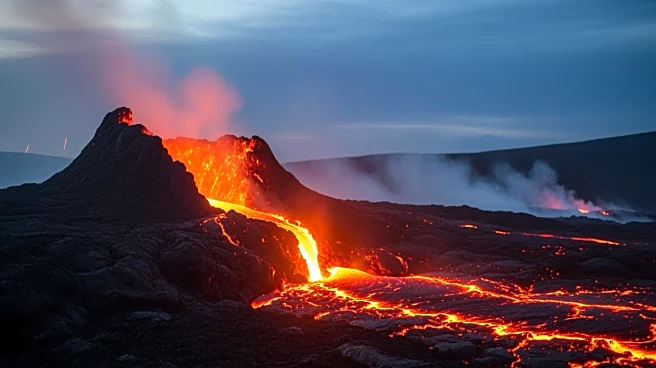What's Happening?
Madagascar is experiencing significant political turmoil as President Andry Rajoelina reportedly fled the country following a revolt by an elite military unit. The unrest began with youth-led protests on September 25, escalating when soldiers from the CAPSAT unit joined demonstrators in the capital, Antananarivo, demanding the resignation of Rajoelina and several government ministers. The CAPSAT unit, instrumental in Rajoelina's rise to power in a 2009 coup, has claimed control over the armed forces. The president's office announced an attempted illegal power seizure, but Rajoelina's current whereabouts remain unknown. Reports suggest he may have left Madagascar on a French military plane, though the French government has not confirmed this. The protests, initially sparked by issues like water and electricity outages, have grown to address broader grievances including poverty, corruption, and the cost of living.
Why It's Important?
The situation in Madagascar is critical as it highlights the fragility of political stability in the region. The military's involvement in the protests and the president's departure could lead to a power vacuum, affecting governance and potentially leading to further unrest. The protests reflect widespread dissatisfaction with the government, which could inspire similar movements in other countries facing economic and social challenges. The involvement of Gen Z activists, inspired by global movements, underscores the role of youth in political change. The U.S. Embassy's advisory for American citizens to shelter in place indicates international concern over the volatile situation. The African Union's call for calm and restraint emphasizes the need for peaceful resolution to prevent further violence and instability.
What's Next?
The future of Madagascar's leadership is uncertain, with the CAPSAT unit in a position of authority. The military's decision to appoint a new head of the armed forces suggests a shift in power dynamics. The opposition and civic groups may push for new elections, but the timeline and process remain unclear. International stakeholders, including the African Union and neighboring countries, are likely to monitor developments closely, potentially offering mediation or support to stabilize the situation. The ongoing curfews and protests indicate that tensions remain high, and the government's response will be crucial in determining the country's path forward.
Beyond the Headlines
The events in Madagascar could have long-term implications for regional politics, highlighting the challenges of governance in post-colonial states. The protests have brought attention to issues of corruption and economic inequality, which are prevalent in many developing countries. The role of social media in mobilizing youth and coordinating protests reflects a shift in how political movements are organized and sustained. The situation also raises questions about the influence of former colonial powers, as seen in the reported involvement of France in Rajoelina's departure.
